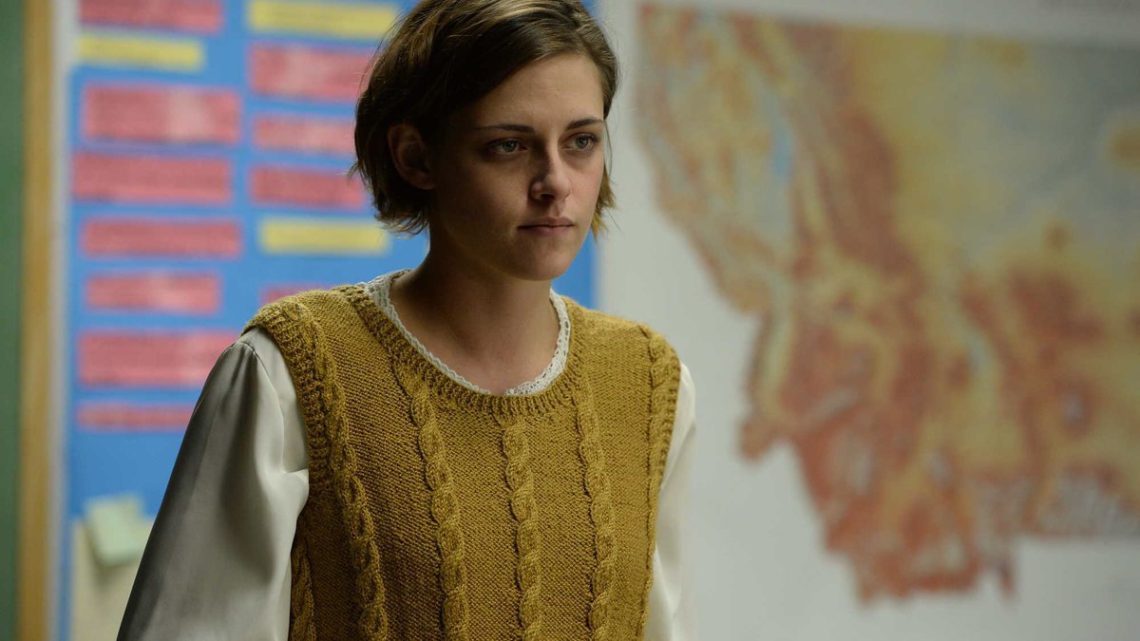As the title suggests, Kelly Reichardt’s latest film, Certain Women, is interested in following a specific kind of woman. The four female protagonists here are not simply united in a coda which connects their lives (a rather unnecessary and artificial ending that’s the only slight misstep in an otherwise flawless film). These women also share a confidence and refusal to bend to others’ demands. Resolute in their different goals, they are also “certain” in that other sense of the word: strong-willed and self-assured, they never apologize for prioritizing their own interests.
When outlining their narrative arcs, the three stories which form the film’s structure could almost be viewed as pointedly feminist, almost finger-wagging rewritings of literary and filmic cliches (the film is based on short stories by Maile Meloy). In the first of the three, Laura Wells (Laura Dern) is a lawyer who does not demonstrate the blind sympathy so often expected from women both by society in general and by the desperate male client (Jared Harris) who eventually holds her hostage in particular. The second story presents a similar reversal of gender expectations as the tough Gina Lewis (Michelle Williams) appears far less sentimental than her husband (Rene Auberjonois) when buying off rare sandstones from an elderly, forgetful man who may not be mentally sound enough to make such decisions. Gina knows what she wants and even risks being mean or exposing herself to the possibility of humiliation, much in the same way that, in the third story, solitary ranch owner Jamie (Lily Gladstone) will take a chance in love to an almost ridiculous extreme.

What allows the film to avoid being just a simplistic reversal of misogynistic cliches is its uncompromising realism. Reichardt’s women are not perfect or happy in every way, nor do their struggles and efforts always succeed. In fact, their imperfections seem to hover over the entire film. Yet these women not only live with their failures, but also keep working towards achieving their dreams despite setbacks. It may not sound like anything exceptional on paper, but in the context of independent American cinema, seeing women onscreen—crucially played by mainstream Hollywood actresses—not having a mental breakdown or at least falling into a severe depression when their lives don’t pan out exactly as planned feels almost revolutionary. Even though feminism is again at the forefront of current debates in culture and politics, the self-proclaimed feminist film Trainwreck still had its lead character, perfectly happy with her life of casual sex and her intense work routine, go through a crisis of conscience and confidence, suddenly and inexplicably envying her sister’s married life and motherhood. Certain Women is neither as vocal about its feminism nor in the least anxious about it or about the frustrations and imperfections it inevitably brings.
Just as casually progressive is the way these particular women do not rely on men at all. Gina handles the construction of her new family home more or less on her own; Laura has a casual lover on the side; while Jamie enjoys working alone in a ranch and only breaks with resolute solitude when she falls in love with another woman, Beth (Kristen Stewart), a lawyer who teaches a night class on school law she sits in on.
It isn’t difficult to see how another filmmaker could have portrayed these women as selfish, shrill or even psychotic for not being entirely devoted to the men in their lives, or for disturbing the status quo so thoroughly in order to get what they want. Most recently, Colin Trevorrow’s Jurassic World presented us with Claire (Bryce Dallas Howard), an ambitious woman who is essentially punished for being single, childless, and devoted to her career. Characterized in the film’s early stages as a neurotic ice queen, as she tries to escape the deadly clutches of a Tyrannosaurus Rex, she becomes more scantily clad, her skin gets sweatier and her hair messier until she is reduced to a mere sex object at the mercy of the bro-totype hero, Owen (Chris Pratt). By contrast, Reichardt’s assured, down-to-earth filmmaking perfectly aligns the viewer with her women’s confidence and strength, set against the aptly cool and beautiful climate of the American Northwest. Her style also allows for moments of tenderness that recall the poetic aesthetic of Jim Jarmusch’s Paterson, especially in the monotonous, imperfect but generally happy life of Jamie on the ranch. Yet even in those moments, there persists a general sense of unease that makes this film feel authentic compared to Jarmusch’s more fantastical, escapist brand of social realism.

Like Certain Women, Paterson is also in large part about making peace with the idea of life as a series of frustrations—a much more radical and important theme in the context of women’s lives. If anything, Reichardt’s film shares an even deeper kinship with Mia Hansen-Løve’s latest, Things to Come. In that film, Nathalie (Isabelle Huppert) faces a particularly disastrous period of her life—losing her husband, mother and job—with a calm pragmatism that testifies to the kind of experience that women her age actually accumulate, in contrast to the self-questioning and weakness most of her Hollywood counterparts demonstrate. Both films share a quietly subversive rage against the erasure of middle-aged female subjectivity, a perspective that is generally assumed to be less important or interesting, judging by the paucity of their representation in cinema.
Quietly and modestly, Certain Women reveals itself to be one of the most potent arguments against the insidious idea promoted everywhere—be it in magazines, films (the Bridget Jones trilogy or the faux-feminist disaster that is Trainwreck) or social media—that women ought to be “chill”—that is, always content with the circumstances they find themselves in, however uncomfortable or dissatisfying they may be. In a year when we have learned that Bridget Jones still does not offend (at least not U.K. audiences) with her persistent self-hatred, her obsession over weight, and her unrelenting pursuit of a decidedly consumerist dream, Certain Women is a timely reminder that another kind of womanhood is possible.

















